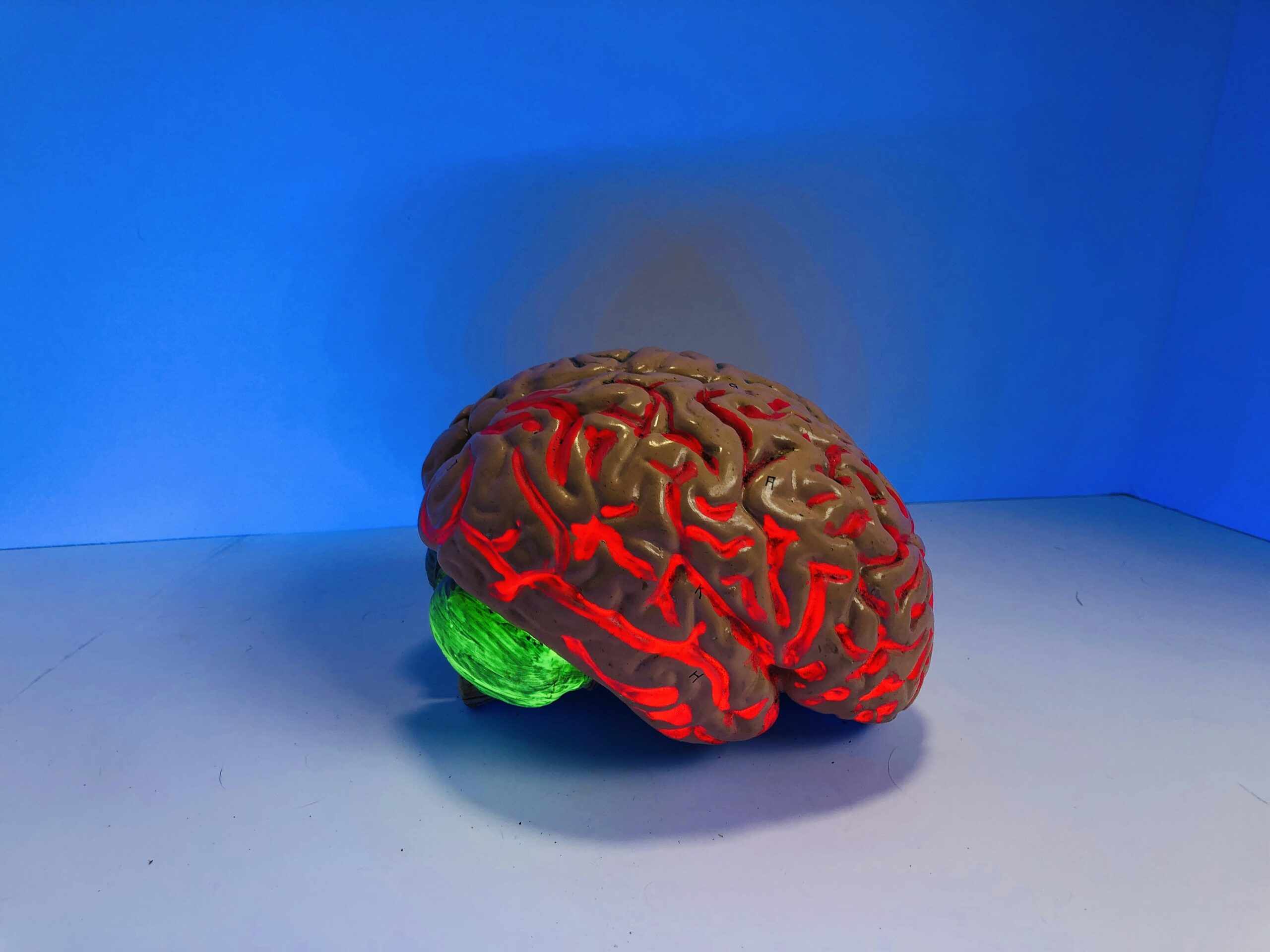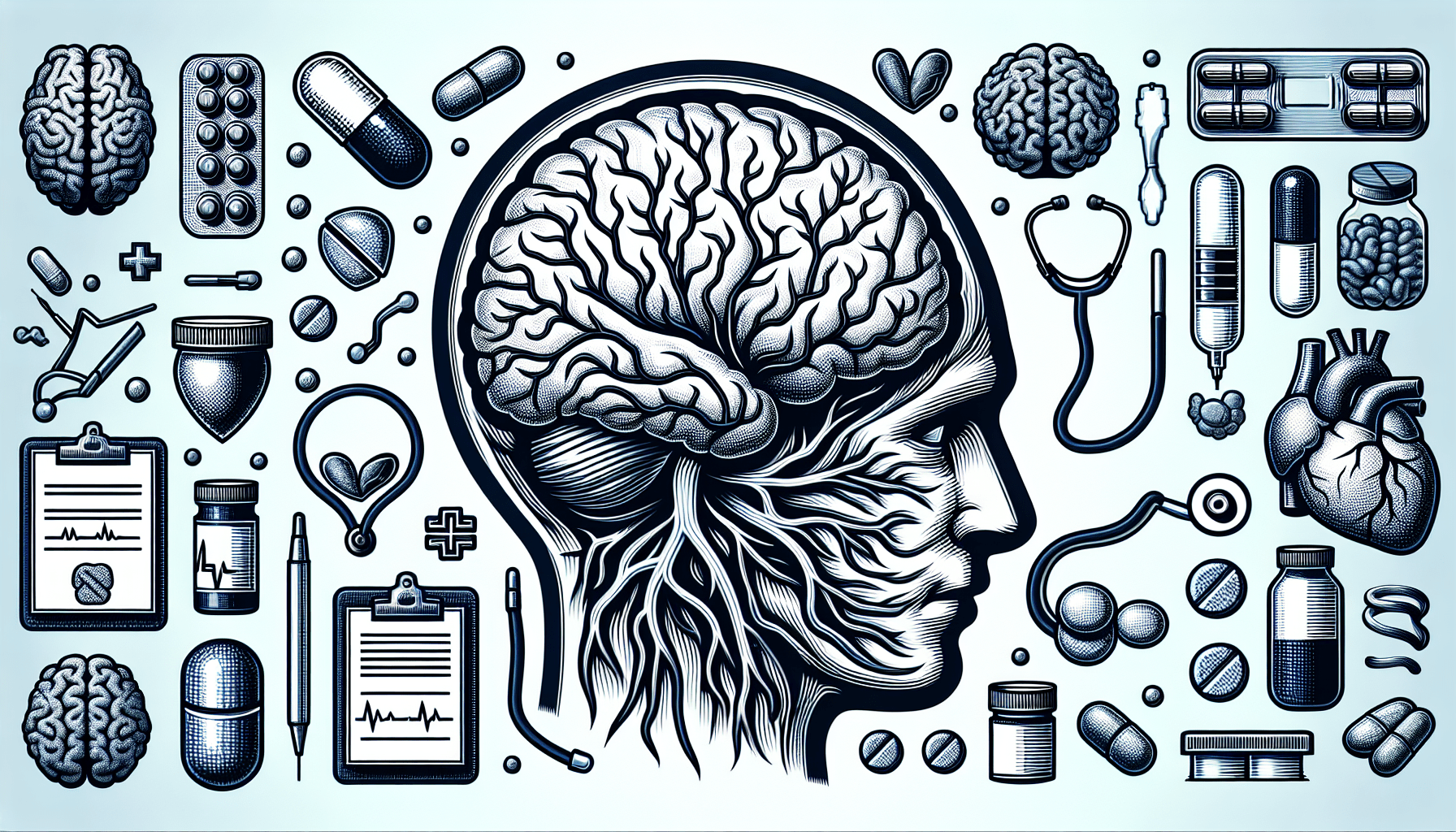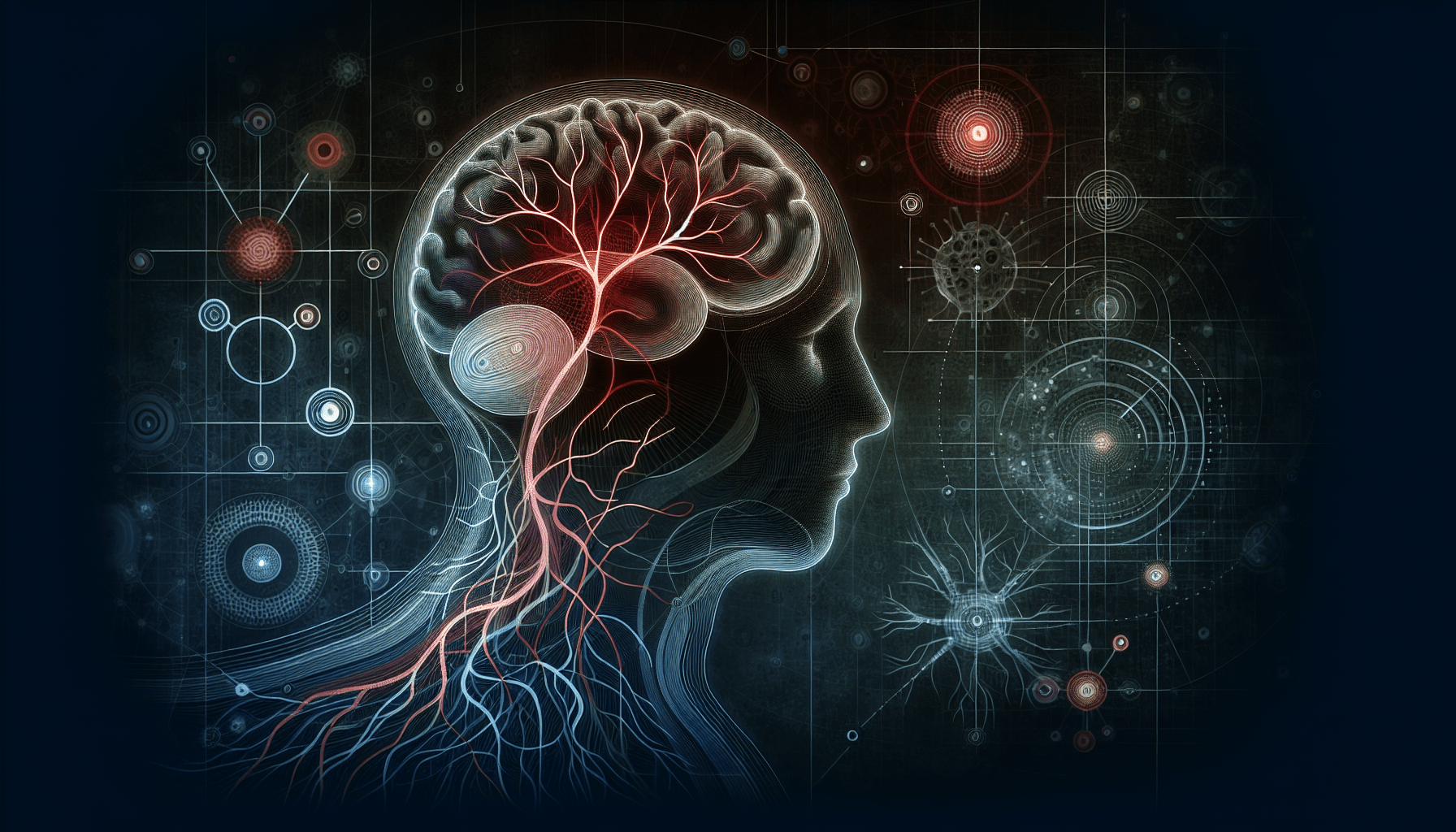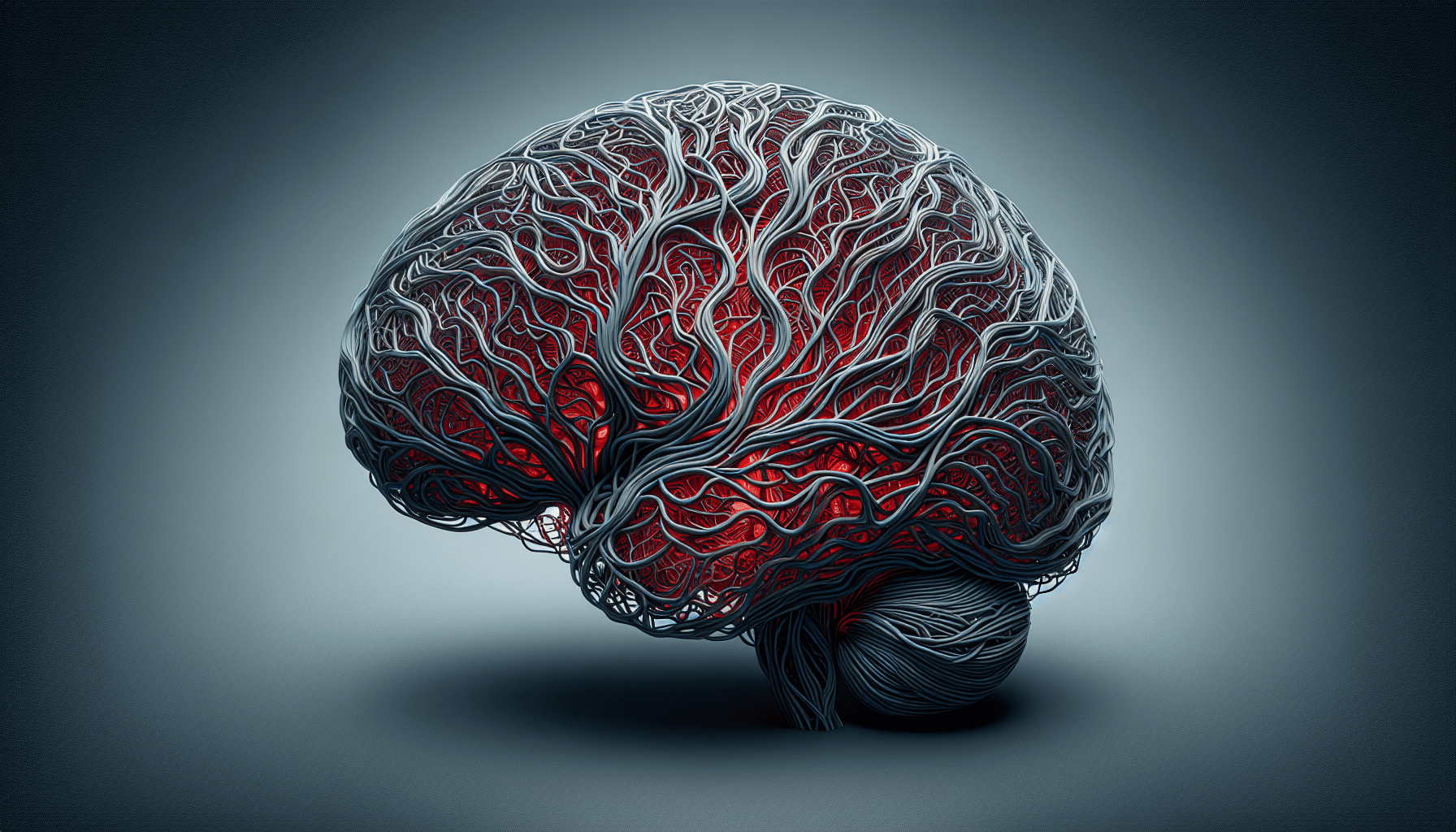Have you ever heard of vascular dementia? If not, don't worry, you're not alone. Vascular dementia is a type of dementia that is caused by damage to the blood vessels in the brain. This can lead to memory loss, confusion, and difficulty with problem-solving and language. In this article, we will explore the causes, symptoms, and treatment options for vascular dementia. So grab a cup of tea, sit back, and let's dive into the fascinating world of understanding vascular dementia.
Understanding Vascular Dementia
Vascular dementia is a type of dementia that occurs when there is a disruption in blood flow to the brain. This disruption can lead to significant cognitive impairments and affects a person's ability to think, remember, and perform daily activities. It is important to differentiate vascular dementia from other types of dementia, as each may have different causes and require different treatment approaches.
Definition of Vascular Dementia
Vascular dementia is a condition characterized by cognitive decline that is caused by problems with blood supply to the brain. It is the second most common form of dementia after Alzheimer's disease. Vascular dementia can result from a series of small strokes that damage the brain's blood vessels or from a single large stroke that affects a significant part of the brain.
Differentiating Vascular Dementia from Other Types of Dementia
While vascular dementia and other types of dementia may share some similarities in terms of symptoms, it is essential to distinguish between them. Alzheimer's disease, for example, is the most common form of dementia and is associated with the accumulation of certain proteins in the brain. Vascular dementia, on the other hand, is caused by reduced blood flow to the brain. Differentiating between these conditions is crucial for appropriate diagnosis and treatment planning.
Causes of Vascular Dementia
The Role of Blood Flow Disruption to the Brain
The disruption of blood flow to the brain is a leading cause of vascular dementia. When the blood vessels that supply the brain narrow or become blocked, it prevents oxygen and nutrients from reaching the brain cells. Conditions such as high blood pressure, atherosclerosis (hardening of the arteries), and diabetes can contribute to this disruption and increase the risk of developing vascular dementia.
Common Medical Conditions Associated with Vascular Dementia
There are several medical conditions that can contribute to the development of vascular dementia. These include hypertension (high blood pressure), heart disease, diabetes, and high cholesterol levels. These conditions can lead to damage in the blood vessels, reducing blood flow to the brain and increasing the risk of vascular dementia.
Behavioral and Lifestyle Factors Contributing to Vascular Dementia
In addition to medical conditions, certain behavioral and lifestyle factors can also contribute to the development of vascular dementia. Smoking, sedentary lifestyle, poor diet, and excessive alcohol consumption can increase the risk of developing conditions such as high blood pressure and atherosclerosis, which in turn can lead to vascular dementia.
Identifying Symptoms of Vascular Dementia
Cognitive Signs of Vascular Dementia
Cognitive impairments are a hallmark of vascular dementia. Common cognitive symptoms include difficulties with memory, problem-solving, and decision-making. Individuals with vascular dementia may also experience difficulties with attention, concentration, and language. These cognitive impairments can significantly impact daily functioning and quality of life.
Physical Symptoms Associated with Vascular Dementia
In addition to cognitive symptoms, vascular dementia can also manifest with physical symptoms. These may include difficulties with coordination and balance, changes in walking pattern, muscle weakness, and difficulty with fine motor skills. These physical symptoms can further contribute to impairments in daily activities and mobility.
Changes in Mood or Behavior
Vascular dementia can also lead to changes in mood and behavior. Individuals may experience increased irritability, apathy, or depression. They may also display impulsive or socially inappropriate behaviors. These changes in mood and behavior can have a significant impact on interpersonal relationships and overall emotional well-being.
Stages of Vascular Dementia
Early Stage Symptoms
In the early stages of vascular dementia, individuals may experience mild cognitive impairments that are noticeable to themselves and their close family members. These impairments may include difficulties with memory, concentration, and problem-solving. At this stage, individuals can still typically perform most daily activities independently, although they may require more time and effort to complete tasks.
Mid-Stage Manifestations
As vascular dementia progresses to the mid-stage, cognitive impairments become more pronounced. Individuals may struggle with memory loss, confusion, and disorientation. They may have difficulties with language and communication, making it challenging to express thoughts and understand others. In this stage, individuals often require more assistance with daily activities and may need supervision or support to ensure their safety.
Later Stage Indications
In the later stages of vascular dementia, individuals experience severe cognitive decline and functional impairments. Memory loss becomes profound, and individuals may struggle to recognize close family members and friends. Communication becomes extremely challenging, and individuals may rely on non-verbal cues to express their needs. At this stage, individuals require extensive care and assistance with all activities of daily living.

How Vascular Dementia Affects Daily Life
Impact on Memory and Focus
One of the most significant ways in which vascular dementia affects daily life is by impairing memory and focus. Individuals may struggle to remember recent events, appointments, or conversations. They may have difficulties following instructions or maintaining attention for extended periods. This can make it challenging to manage personal finances, adhere to medication schedules, and maintain social engagements.
Challenges with Mobility and Physical Function
Vascular dementia can also lead to challenges with mobility and physical function. As the condition progresses, individuals may experience difficulties with coordination, balance, and muscle strength. This can increase the risk of falls and injuries. Simple tasks such as dressing, bathing, and eating may become more challenging, requiring assistance or the use of mobility aids.
Effect on Emotional Wellbeing and Interpersonal Relationships
The cognitive and functional impairments associated with vascular dementia can have a significant impact on emotional wellbeing and interpersonal relationships. Individuals may experience frustration, anxiety, or depression as they struggle to navigate daily tasks and maintain their independence. Caregivers and family members may also experience emotional distress as they witness the decline of their loved one. It is important to recognize and address these emotional impacts to provide holistic care and support.
Facilitating Vascular Dementia Diagnosis
Common Diagnostic Tests and Procedures
Diagnosing vascular dementia involves a comprehensive assessment of a person's medical history, symptoms, and physical and cognitive functioning. Common diagnostic tests may include brain imaging scans, such as magnetic resonance imaging (MRI) or computed tomography (CT) scans, to identify any brain abnormalities related to decreased blood flow. Blood tests may also be conducted to rule out other possible causes of cognitive decline.
The Importance of Medical History
Obtaining a thorough medical history is crucial in the diagnosis of vascular dementia. This includes information about the presence of medical conditions such as hypertension, diabetes, or heart disease, which can increase the risk of developing vascular dementia. It is important to communicate specific symptoms, their duration, and any changes observed in daily functioning to help healthcare professionals make an accurate diagnosis.
The Role of Neurological Examination in Diagnosis
A neurological examination is often part of the diagnostic process for vascular dementia. This examination assesses cognitive function, coordination, reflexes, and muscle strength. The results of this evaluation can provide important insights into the presence and severity of cognitive and physical impairments, helping to confirm the diagnosis of vascular dementia.

Vascular Dementia Risk Factors
Exploring Genetic Predisposition
While vascular dementia is primarily caused by vascular risk factors such as high blood pressure and heart disease, there is also evidence of a genetic predisposition. Certain genetic factors can increase an individual's susceptibility to developing vascular dementia. However, it is important to note that genetics alone do not determine the development of the condition and that the impact of genetic factors can be influenced by environmental and lifestyle factors.
Impact of Age and Gender
Age and gender also play a role in the risk of developing vascular dementia. Advanced age is a significant risk factor, with the incidence of vascular dementia increasing with age. Additionally, research suggests that men may be at a higher risk than women for developing vascular dementia. Understanding these risk factors can help healthcare professionals identify individuals who may be more susceptible to the condition and implement appropriate prevention and management strategies.
Relation with Cardiovascular Diseases
Vascular dementia is closely linked to cardiovascular diseases. Conditions such as hypertension, atherosclerosis, heart disease, and diabetes increase the risk of developing vascular dementia. These conditions can damage blood vessels, leading to reduced blood flow to the brain and subsequent cognitive impairments. Managing cardiovascular health through lifestyle modifications and appropriate medical interventions is essential in reducing the risk of developing vascular dementia.
Prevention Strategies for Vascular Dementia
Role of Regular Physical Exercise
Regular physical exercise is a crucial component in the prevention of vascular dementia. Engaging in aerobic exercises that promote cardiovascular health, such as walking, swimming, or cycling, can help maintain healthy blood vessels and improve blood flow to the brain. Exercise also promotes the release of beneficial chemicals in the brain that support cognitive function and overall brain health.
Importance of a Balanced, Nutritious Diet
Maintaining a balanced, nutritious diet is vital in preventing vascular dementia. Consuming a variety of fruits, vegetables, whole grains, lean proteins, and healthy fats provides essential nutrients that support brain health and vascular function. Limiting the intake of processed foods, saturated fats, and sugary beverages is also recommended to protect against vascular damage.
Managing Current Medical Conditions
Managing current medical conditions such as hypertension, diabetes, and heart disease is crucial in preventing vascular dementia. Regular medical check-ups, adherence to prescribed medications, and lifestyle modifications can help control these conditions and reduce the risk of vascular damage. Consulting with healthcare professionals to develop a comprehensive management plan is essential in optimizing vascular health and minimizing the risk of cognitive decline.

Treatment Options for Vascular Dementia
Potential Role of Medications
While there is no cure for vascular dementia, certain medications can help manage the symptoms and slow down the progression of the condition. Medications may be prescribed to control high blood pressure, reduce cholesterol levels, prevent blood clots, and manage other medical conditions associated with vascular dementia. It is essential to consult with a healthcare professional to determine the appropriateness and potential benefits of these medications.
Cognitive Therapies and Rehabilitation
Cognitive therapies and rehabilitation can be beneficial in managing the cognitive impairments associated with vascular dementia. Speech and language therapy, occupational therapy, and cognitive rehabilitation programs can help individuals maintain and improve their cognitive abilities, promote independent functioning, and enhance quality of life. These interventions may involve memory training, problem-solving exercises, and strategies to compensate for cognitive deficits.
The Use of Assistive Devices or Technologies
Assistive devices and technologies can play a valuable role in supporting individuals with vascular dementia. Mobility aids such as walkers or canes can help improve physical function and reduce the risk of falls. Technology-based aids, such as reminder apps or wearable devices, can assist with medication management, appointment reminders, and daily task organization. These tools can enhance independence and provide additional support for individuals living with vascular dementia.
Caring for Someone with Vascular Dementia
Effective Communication with a Dementia Patient
When caring for someone with vascular dementia, effective communication is essential. Using simple and clear language, speaking at a slower pace, and giving individuals time to process information can help improve understanding and reduce frustration. Non-verbal communication, such as gestures and facial expressions, can also facilitate communication. It is important to be patient, attentive, and empathetic when communicating with a person with vascular dementia.
Creating a Safe and Comforting Environment
Creating a safe and comforting environment is vital for individuals with vascular dementia. Removing potential hazards such as loose rugs or clutter can reduce the risk of falls. Maintaining a visually organized space can help individuals navigate their surroundings more easily. Additionally, creating a calm and soothing atmosphere with appropriate lighting and familiar objects can enhance well-being and reduce agitation.
Accessing Professional Care and Support
Caring for someone with vascular dementia can be demanding, and it is important to seek professional care and support. Home healthcare services, support groups, and respite care can provide much-needed assistance for caregivers and ensure the well-being of both the person with vascular dementia and their caregiver. Working with healthcare professionals experienced in dementia care can offer valuable guidance and resources for managing the challenges associated with vascular dementia.
In conclusion, understanding vascular dementia involves recognizing its causes, identifying its symptoms, and exploring various treatment options. By raising awareness about this condition, individuals can better comprehend the impact it has on daily life and implement preventive strategies to reduce the risk of developing vascular dementia. Providing appropriate care and support for individuals living with vascular dementia is crucial in promoting their well-being and maintaining their quality of life.



